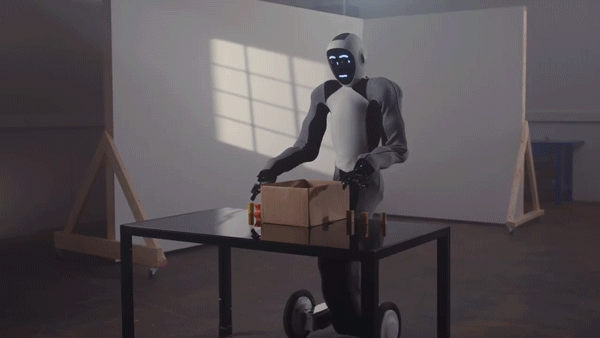One hundred autonomous drones are now flying in IKEA stores
One hundred autonomous drones are now flying in IKEA stores – the latest in IKEA Zaventem, Belgium – with Ingka Group being the first retailer to use such solution successfully at scale for stock inventory.
The main idea behind the drone system is to ensure correct stock information for customers in the shop and for online orders.
The automated drones will not be a risk to customers, as they will only fly at night between the hours of 22:30 and 04:00, when the store is empty.
Fitted with a GPS system specific to the store, they operate and take photographs of the shelves at night without needing to be piloted. The data is then transmitted to staff who analyse it in the morning while the drones recharge for the next shift.
Each device has its own section and photographs location-by-location.
"We track down goods that are not in the right place and also lost pallets," the Manager of IKEA Zaventem Fabrice Fouquembert explained to Sudinfo. "It used to take three months to do an inventory, as we have 11,000 locations in the shop."
"Before, two employees had to climb into a platform and check each location. It was a tedious and complicated job." Sometimes employees even had to look at shelves from the ground using binoculars.
The Zaventem IKEA manager also highlighted the decrease in the error rate in the Ghent store, where the system was piloted in Belgium. "The error rate has dropped from 6% to 1%."
.@IKEA’s latest innovation isn’t flat packed! This intelligent drone is seeking to make warehouse operations more efficient and safer. #robotics #automation pic.twitter.com/bdEsTjSVep
— Rafael Westinner (@RafaelWestinner) March 4, 2021
KEA is constantly looking for new opportunities to innovate and create an even better experience for customers across channels. Two years ago, Ingka Group and the Supply Chain Development Team at Inter IKEA Group, together with Verity, a provider of indoor drone systems, started developing a fully autonomous drone solution to track inventory and improve the wellbeing of its co-workers on the floor.
As a result, one hundred busy drones are now at work during non-operational hours to improve stock accuracy and secure availability of products for online or physical retailing. This solution supports a more ergonomic workplace for IKEA co-workers as they no longer need to manually confirm each pallet.
“We are investing in technology across the board so that our stores can better support customer fulfillment and become true centers for omnichannel retailing. Introducing drones and other advanced tools – such as, for example, robots for picking up goods – is a genuine win-win for everybody. It improves our co-workers’ wellbeing, lowers operational costs, and allows us to become more affordable and convenient for our customers,” says Tolga Öncu, Head of Retail at Ingka Group (IKEA).
The first drone took off in IKEA Switzerland in 2021 and the 100 that are operational now are stocking inventory in 16 different locations in Belgium, Croatia, Slovenia, Germany, Italy, the Netherlands, and Switzerland.
“Being at the forefront when it comes to innovative and value adding solutions is part of the IKEA heritage. We are always curious of learning from others and this project is a great example of how we have collaborated across IKEA and together with an external partner come up with a solution that we all benefit from,” says Peter Ac, Head of Innovations in Logistics & Fulfilment, Supply Chain Development, Inter IKEA Group.
Ingka Group continues to revamp stores across the world, improving their handling capacities and enabling them to ship online orders in a fast, more sustainable and affordable way.
About Ingka Group
With IKEA retail operations on 31 markets, Ingka Group is the largest IKEA retailer and represents about 90% of IKEA retail sales. It is a strategic partner to develop and innovate the IKEA business and help define common IKEA strategies. Ingka Group owns and operates IKEA sales channels under franchise agreements with Inter IKEA Systems B.V. It has three business areas: IKEA Retail, Ingka Investments and Ingka Centres. Read more on Ingka.com.























